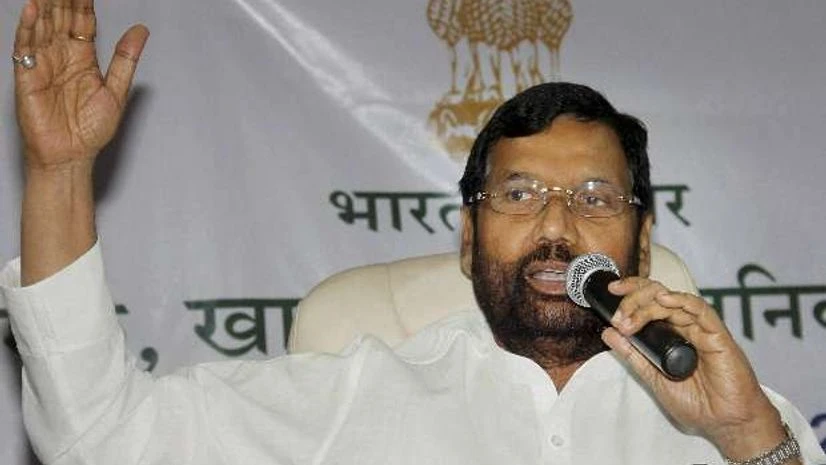The National Food Security Act, which promises to subsidise food grain for about 810 million people, now covers the whole country, more than three years after it was formally notified.
With Kerala and Tamil Nadu, the two states resisting its implementations for different reasons, now agreeing to implement it from November 1, all 36 states and Union territories have been brought under it.
This would entail an expenditure of Rs 1.4 lakh crore annually — more than the 2016-17 budgeted food subsidy of about Rs 1.35 lakh crore.
Also Read
“When we came to power, food law was being implemented in only 11 states. I am happy to share that the food security law is being implemented in all states and Union territories,” Union Food Minister Ram Vilas Paswan said on Thursday.
He said Kerala’s average food grain offtake has been around 1.4 million tonnes per year, while that of Tamil Nadu has been around 3.6 million tonnes per year. This would be preserved irrespective of the beneficiaries identified under the Act.
Under the law, which was passed by Parliament in 2013, the government provides 5 kg of highly subsidised food grain per person every month at Rs 1-3 per kg.
On the subsidy outgo, Paswan said: “It will be Rs 11,726 crore per month or about Rs 1.4 lakh crore annually.”
Reiterating that the government was prepared for the important step, he said food grain had been allocated. “The legal entitlement to receive highly subsidised food grain under the Act now extends to about 80 crore (800 million) people against the total intended coverage of 81.34 crore (813.4 million) people.” At the current coverage, the minister said, the monthly allocation of food grain to states and union territories was about 4.5 milion tonnes. Governments of Kerala and Tamil Nadu took the decision to implement the law after the Centre took the decision to supply grains to these two states at minimum selling price rates for above-poverty line families, Paswan said.
Besides persuading states and union territories to implement this law, Paswan said the government had taken a number of steps to improve the functioning of the public distribution system (PDS) and curb leakages.
He said the government has so far aligned 71 per cent of ration cards with Aadhar cards; the rest would be done at the earliest.
This has resulted in deletion of about 26.2 million ration cards across all states, he added.
“The grains are being delivered to dealers at their door steps. Dealer margins have been increased. We are doing end-to-end computerisation,” Paswan said.
Fair price shops were being automated for distribution of food grain through an electronic point-of-sale (e-PoS) device that authenticated beneficiaries at the time of distribution and also electronically captured the quantity supplied.
“As of 31 October, e-PoS devices are operational in 161,854 fair price shops,” Paswan said.
For smooth functioning of PDS, the Centre was providing financial assistance for meeting expenditure of inter-state transportation and handling of food grain and dealers margin.
“The assistance for fair price shops dealer margin also contains a component of assistance for installation and operation of PoS devices. So far, Rs 1,874 crore has been released to states in 2016-17,” Paswan said. The minister also highlighted that the government was implementing direct benefit transfer (DBT) in Chandigarh, Puducherry and urban areas of Dadar and Nagar Haveli.

)
